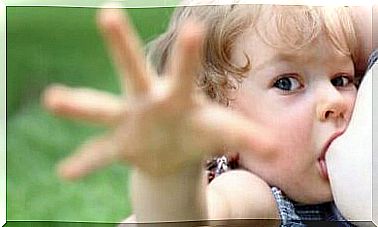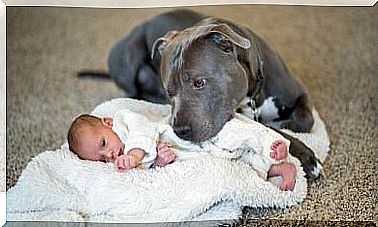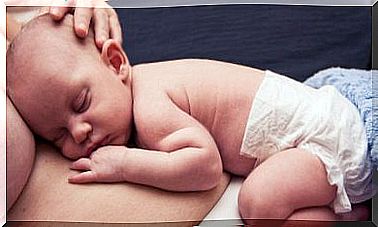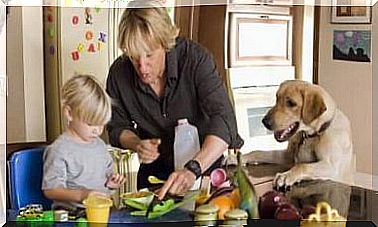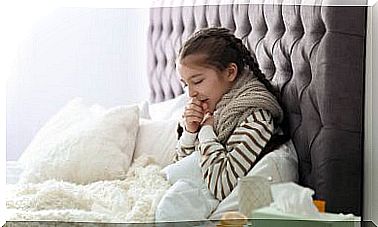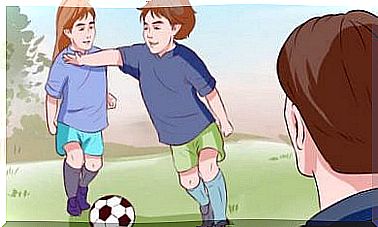What Can We Do With An Overprotected Child?
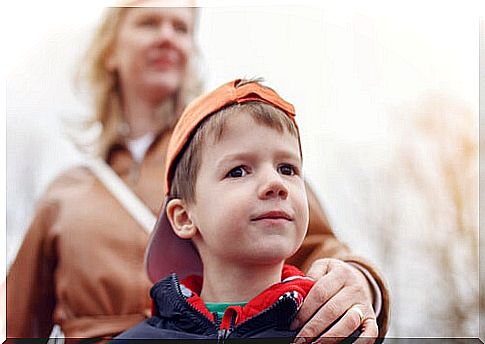
It is evident that all parents want the best for their children and that they develop with the fundamental values for life. However, sometimes, without realizing it, they are raising an overprotected child. Because?
Many parents educate in an overprotective way to avoid suffering. They want their children to have everything within their reach and be happy, but overprotection is a mistake. The main reason is that it does not allow children to develop or learn to do things on their own, to overcome their own difficulties.
All parents are overprotective at some point and to some extent it’s normal. It’s an instinct we use to make sure our kids don’t suffer.
But if it happens to be routine in our children’s education, we could end up causing harm.
Unfortunately, the overprotected child is very common these days, as well as seeing parents accompanying children almost of age to school and children and teenagers who turn to their parents in the face of the smallest of problems. At that age, they almost became adults. This is a real danger.
What does the term overprotective include?
Overprotection is a fact that has a very heterogeneous definition and, therefore, the limits between the adjective overprotective or not overprotective are quite blurred. Despite this, the following can be considered as behaviors that educate an overprotected child:
- Do not allow them to eat alone to avoid getting dirty. The consequence is that, at around 2 or 3 years of age, children still do not know how to use the cutlery on their own.
- Dress the child. The excuse that is often used is that “this way we go faster”. The danger of this is that it becomes routine.
- Help the child to carry out their hygiene habits without giving them the option to try it alone. For example, washing hands, brushing teeth, etc.
- Continuously advise her of what she has to do and make decisions she is capable of making on her own. Between 4 and 5 years of age, children can start choosing: food, clothes… However, there are parents who make decisions for children because only they know what is right, what they want or need.
- Be attentive and intervene in any discussion the child has with a colleague, always in favor of your own child, even without knowing who was to blame for what happened.
- Gather her toys so she doesn’t get too tired.
- Be the child’s agenda. That is, plan what she should do and at what time.
- Prepare school backpack.
- Call several times a day to find out your location and keep track of it.
- Always accompany her when she is already considered “adult”. For example, when taking a test or even at a job interview.
How can we avoid raising an overprotected child?
Tips for parents
The main problem with many parents behaving in an overly protective way is that they don’t know the advantages that it brings a child to be able to do things without their help. When your child asks for help, the main thing is to make suggestions for solving the problem with your own resources.
Of course the child will make mistakes. And we must not prevent them from committing them. The ideal is to make her see that little by little she is achieving things. Of course, at this point you will need time, because you must remember that we are teaching the child to develop and he has to assimilate a series of guidelines.
It is also a good idea to explain to the child why we are doing it, so that he can act alone even when there is no adult around to explain how to do it. We can start with simple gestures, such as clearing and clearing the table, participating in the simplest household chores, your own hygiene habits, etc.
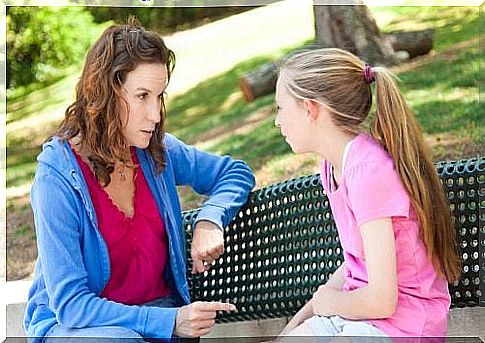
If we are facing a shy child, parents can try to let him leave the house more to open his circle of friends, to share his feelings with other friends … Although never out of obligation. If not, it will be worse, because children can end up developing a lonely and suspicious personality.
In situations that can be complicated, instead of avoiding them, we must prepare the children through dialogue, which will become our best ally.
What’s the limit: pamper or protect?
As we’ve stated before, we can’t confuse caring and showing love for your child with overprotection. It’s time to set some criteria. What most parents try is to make their children develop by learning a set of values that will help them grow as a person.
What a child needs at such an early age is for his closest home environment to be as similar as possible to what it will one day be when he goes out into the world. That is, learning little by little to be independent, drawing conclusions and knowing what to do at every moment, although without established rules.
That is, talking to your child, trying to understand, wanting to hear their problems, doubts, complaints, finding solutions together, talking instead of arguing, talking calmly instead of screaming, gently explaining why he did it wrong… That’s not is to raise an overprotected child, but to educate.
